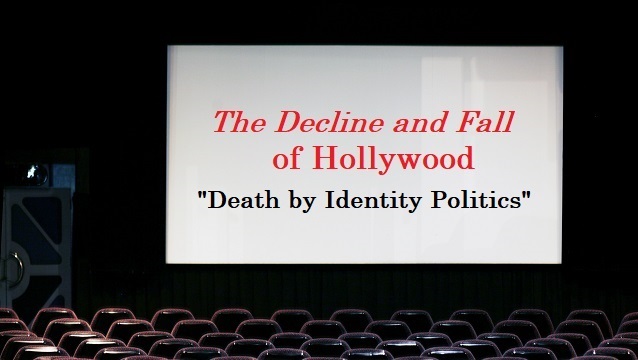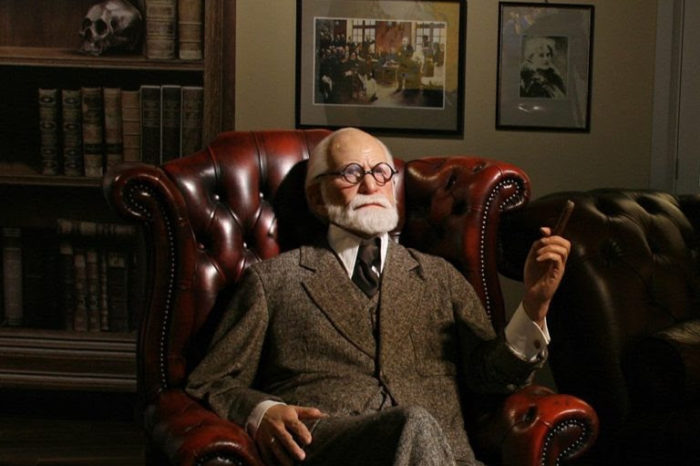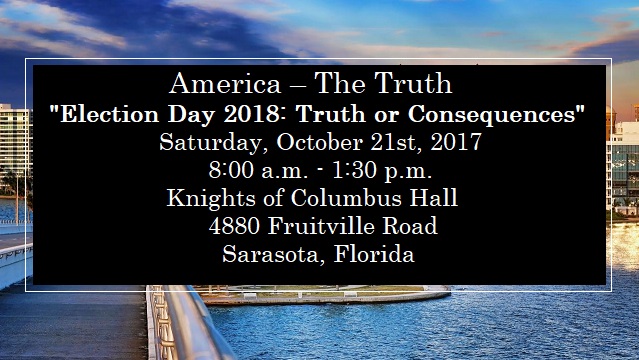Plenty of saints were shocking, to say nothing of our Lord, who got in a spot of trouble for His shocking claims, as you might recall. I am certainly no saint, but I don’t think “shocking” is a helpful way of approaching the question of Catholics in public life. It doesn’t settle much to say that the current Pope is shocking to many Catholics, including me. Or to note that I’m shocked by supposedly Catholic politicians who make laws in flat contradiction to the natural law, which you need no faith to grasp.
In my case, do you mean it’s shocking that a Catholic like me is loudly worried about Islam, which has waged war on Holy Mother Church for more than a millennium?
Or that I’ve supported Pope Paul VI’s criticism of artificial contraception so strongly that Hillary Clinton attacked me for it in her presidential campaign?
Frankly, what’s really shocking is that a poor sinner like me has spoken out more on contraception than 99% of our bishops, who seem too preoccupied with diversity and climate change to talk about God.
Maybe you mean it’s shocking that I’m always joking about my lack of chastity and my fondness for black dudes, but I still call myself Catholic. And I don’t see what’s so shocking about that, either. One of the most famous saints of all time, sixteen centuries ago, prayed, “Lord, make me chaste, but not yet.”

Anyone who grows up in Catholic cities like New Orleans and Rome emerges pretty unshockable — and certainly wouldn’t be alarmed by me.
I think it was a visit to New Orleans that inspired Evelyn Waugh to make an observation I often quote: Protestants seem to think, I’m good, therefore I go to church, whereas Catholics think, I’m very bad, therefore I go to church. Waugh also said, when people asked how he could call himself a Catholic: You have no idea how bad I’d be if I weren’t.
Sins of the flesh, let us remember, are at the bottom of the scale. The Church says self-righteousness is at the top. Therefore, I’m in a lot better shape than some of my feminist and establishment Republican enemies. To say nothing of Islam!
In life, I believe in aspiration. If you’re a poor kid, aspire to rise economically. If you’re shy, aspire to confidence, so you can defend your views in public. And if you’re a wretched sinner like me, aspire to end up better than you are now. Miracles do happen!
Where do you experience tensions with Catholicism in your life?
Who says any Catholic should lack tension stoked by his weaknesses? We Catholics are better at clothes, food, and parties. Why shouldn’t we be better at guilt, too?
You don’t see me disputing the Church’s teachings on homosexuality. There’s no intellectual tension, because I wouldn’t dream of demanding that the Church throw away her hard truths just to lie to me in hopes I’ll feel better about myself. I love the truth, not lies, and I know no one’s feelings are the basis of truth.
That’s why I don’t understand those Catholics — such as, if you’ll forgive my horrid impertinence, this magazine’s editor at large, Fr. Martin — who imply that if people don’t like what the Church says, maybe the Church is wrong or should apologize. The Church was founded on a rock and a cross, not on a hug.
Still, if you insist I talk about feelings, I’ve said before that I feel there’s something wrong with the fact that my lovemaking can’t produce the mini-Milo’s I’d like to have. How’s that for a subjective confirmation of the Church teaching that same-sex attraction is “objectively disordered” because it can’t lead to procreation?
Bottom line: The Church says I’m not culpable for my temptations, but I shouldn’t sin. She’s right. And her founder said He came to heal those who knew they were sick, so I don’t despair.
What was the best thing about your Catholic upbringing?
One good thing was hearing Mary praised for her motherhood. Whatever my own mother’s shortcomings, I learned that motherhood is the greatest vocation, and one that God banned all men from. That’s why I think it’s sad that today’s feminists, as Chesterton observed, despise motherhood and all the other chief feminine characteristics. The idea that men and women shouldn’t be different — shouldn’t have different interests, strengths, and ways of relating to Creation — is insane, and it’s empirical fact that trying to deny these differences makes all of us less happy.
“I think it’s sad that today’s feminists, as Chesterton observed, despise motherhood and all the other chief feminine characteristics.” Milo tweet.
Growing up Catholic also taught me the value of humility, even if that’s not exactly a forte of mine. This virtue is important for society, because it teaches us to be tolerant of a diversity of opinions, rather than arrogantly trying to silence people we disagree with. And it’s important for me personally, because despite my vanity, I know I’m not as smart as Thomas Aquinas or as good as St. Francis.
There’s a great line from the novelist Flannery O’Connor, who liked to shock and troll a bit herself: “I’m not limited to what I personally feel or think; I’m a Catholic.” She meant the same thing Chesterton did in his famous quip, “Tradition is the democracy of the dead.” Political correctness gives us thin gruel and loneliness. The Church gives us a grand party with red meat and red wine.
[ … ]
How do you pray?
On my knees.
Who are your role models, either living or dead, in the Catholic faith?
Pope Benedict XVI is still the wisest and most erudite man in Europe, though I’m sure he doesn’t deserve to have me hung around his neck as an admirer. He was also brave enough to declare publicly that Islam’s irrationalism is one of the world’s great problems.
By the way, in the same Regensburg lecture he pointed out that secularists in the West are also dangerously unbalanced, because they’re as hostile to religion as Muslims are to rationality. I note that he credits my wild pagan ancestors in Greece for the West’s deepest rational roots.
My personal motto, “laughter and war,” comes from a passage in Chesterton’s Heretics. He should be the patron saint of Catholic journalists. And of course Hilaire Belloc was brilliant as a defender of the West. In the 1930s, when the Caliphate had collapsed and no one imagined Islam would ever come back, he prophesied that the West would again be threatened, because our superior money and technology can’t take the place of a devotion to your civilization.
I’ve already quoted St. Augustine, who had his own pelvic issues. I once tweeted out an illustrated page from his Confessions that began, “I will now recall my past foulnesses.” That’ll work for my memoirs someday, too.
Rabelais and the anonymous trolls who wrote the Carmina Burana are kindred spirits.
She wasn’t a Roman, but the conservative essayist Florence King earned a title I aspire to. A New York Times book reviewer said of her: “The mind of a Jesuit with the mouth of a truck driver.”
What’s your favorite Scripture passage and why?
I’m tempted to go for the easy Waugh line from Ecclesiastes: “Vanity of vanities, all is vanity.”
You recently self-published the new book Dangerous after Breitbart fired you and your original publisher withdrew the contract. How do you respond to critics who say you are “hateful” and “hurtful” to others?
The truth often hurts, as the Church has always understood. That’s one reason she so often shows us a Man in agony on a cross. I don’t delight in others’ pain, but I’m not scared into silence by the fear someone somewhere will take offense.
“The fact that so many of us think hurting people’s feelings is the greatest evil says all you need to know about the decline of our civilization.” Milo tweet.
If I’m wrong about something, don’t whine; show me evidence and make rational arguments.
Or tell a good joke! A big part of what I do is playing the jester, telling the powerful the truths they don’t want to hear. Maybe that’s what you meant about my “shocking” aspect. A friend who’s a brilliant medievalist at the University of Chicago (and who was just received into the Church this Easter, Deo gratias), likes to embarrass me by writing about me as a holy fool.
The fact that so many of us think hurting people’s feelings is the greatest evil says all you need to know about the decline of our civilization.
I say embarrass, but of course it’s a great compliment and I am happy to receive any kind of attention.
By the way, I wasn’t fired.
In the book you mention that you made a mistake in the broadcast that got you fired. Looking back at your public career to date, what would you do differently if you could do it all over again?
I would change nothing.
In 2011 and 2012, you were featured in Wired UK’s yearly top 100 most influential people in Britain’s digital economy, and the Observer once called you “the pit bull of tech media.” How is tech media changing the way we do journalism today?
I blame tech bloggers for the proliferation of “process journalism,” which means writing whatever appears to be true at that moment and fixing it later. Of course, they never bother. Tech journalism today has lower professional standards than a Detroit bordello, which is why I left to become famous for a living instead.
You were one of the first tech journalists to cover the Gamergate controversy, criticizing what you saw as the politicization of video game culture by “an army of sociopathic feminist programmers and campaigners, abetted by achingly politically correct American tech bloggers.” How do you respond to critics who say you are supporting the tendency of video games to demean women?
Just as there was no evidence in the 1990s that rock music, heavy metal and video games caused violence, there is no evidence today behind the moral panic that video games make you sexist. It’s politics masquerading as well-meaning academic enquiry. Fortunately, we won, and the noxious feminists are on the defensive in gaming.
What does masculinity mean to you?
It means a willingness to expose yourself to enemy fire, whether or not you wear a uniform, in order to defend the good — your family, your church, your country, your civilization. Now the men in uniform are much better men than I, but even I can do a bit to defend those things with the gifts God gave me.
Our Lord, as always, showed the way: He endured the horrors of the Passion to defend and redeem the whole world. I’m with Rod Dreher: Anybody who only preaches a namby-pamby God, and not the highly masculine God of Scripture, is leaving young men vulnerable to the monstrous false gods of race and ideology.
Boys struggling to become men are always potential barbarians, because they hunger for masculinity but aren’t sure where to find it or how to productively express it. Our Lord revealed it to them, but too many in the Church keep masculinity hidden or the subject of shame.
As a gay Catholic, you’ve debated same-sex civil unions on television news programs, surprising some people with your perspectives. In a nutshell, what do you believe about this issue and why?
First, I’m with St. Thomas Aquinas: The civil laws can’t forbid everything the Church forbids, because utopianism does more harm than good, given how weak most of us are.
I was for a long time contemptuous of gay marriage. But then I fell in love, and now I don’t know what to think.
I’d add that just as the Church doesn’t insist civil society require everyone to follow all her views of proper conduct, so civil society should follow the First Amendment and not bully believers into espousing whatever views politicians have enacted. It disgusts me when gay activists harass in the public square, much less in the courts, those simple believers who aren’t harming anyone while they bake pizzas and the like.
In 2008, the BBC featured you in media coverage of Pope Benedict XVI’s historic visit to the United Kingdom. From your perspective, what was most significant about his visit?
One major thing he did was to visit John Henry Newman’s Oratory and move him a step forward toward canonization. That’s great, given that Newman’s nemesis was liberalism in religion. He was not, as George Weigel has joked, a believer in an ice-your-own-cupcake world.
The Vatican has launched a commission to examine and overhaul the Holy See’s media communications strategy. If you could give any advice to Pope Francis about how to do journalism today, what would it be?
Stop talking.
Any final thoughts?
Pray for me. I need it.
Reprinted with permission from MiloYiannopoulos.net; slightly edited.
















 America’s enemies understood that the U.S. would have to be defeated from within. They launched a deliberate effort to reverse traditional American strivings for adulthood, freedom, and independence in an effort to infantilize the American public and move the country toward socialism. Cry-bulliies on campus who now require safe spaces to protect themselves from unwelcome ideas are a glaring example of the success of the effort. The infantilized students at UC-Berkeley have similarly declared free speech dead on campus – opposing ideas apparently too threatening to their fragile egos.
America’s enemies understood that the U.S. would have to be defeated from within. They launched a deliberate effort to reverse traditional American strivings for adulthood, freedom, and independence in an effort to infantilize the American public and move the country toward socialism. Cry-bulliies on campus who now require safe spaces to protect themselves from unwelcome ideas are a glaring example of the success of the effort. The infantilized students at UC-Berkeley have similarly declared free speech dead on campus – opposing ideas apparently too threatening to their fragile egos.








